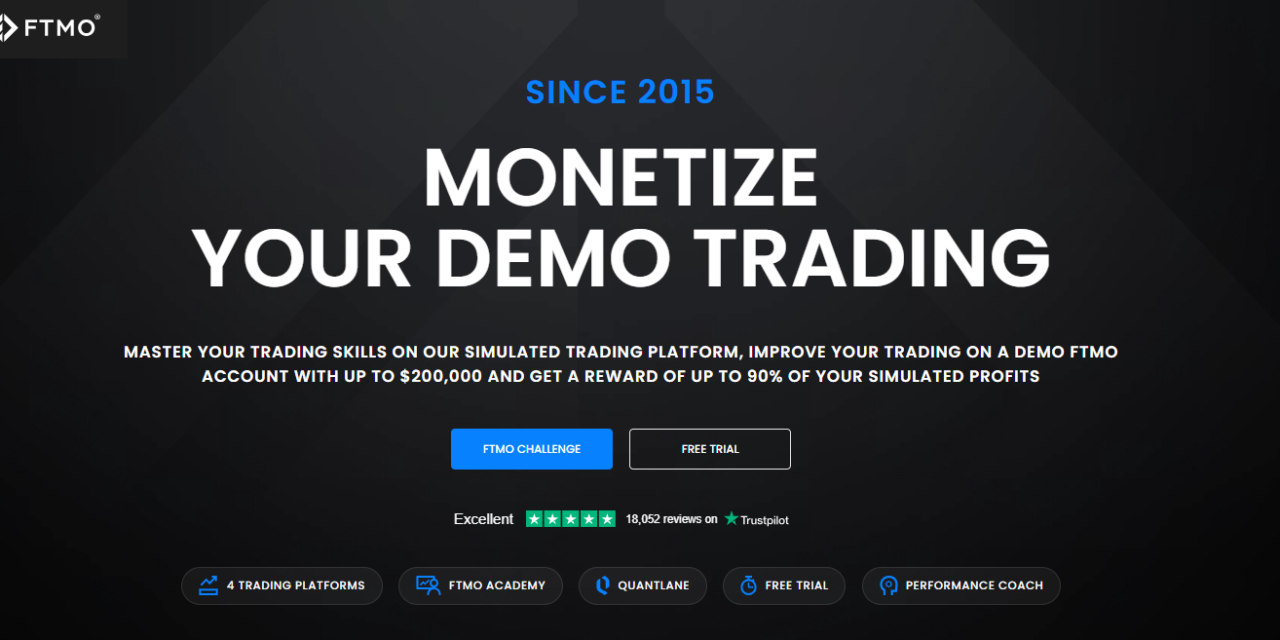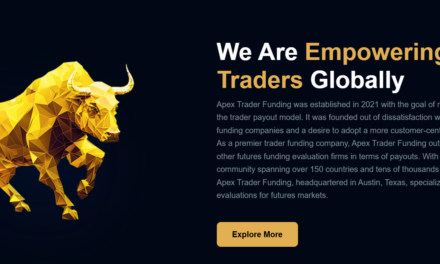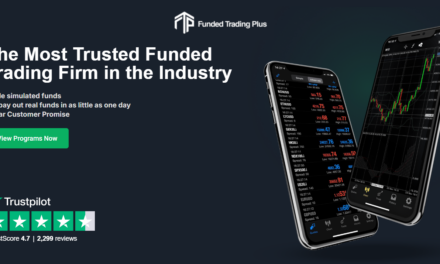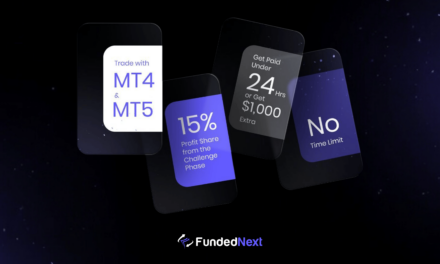An In-Depth Exploration of FTMO Prop Trading Firm
Unlocking Financial Potential: A Comprehensive FTMO Review for Ambitious Traders
Introduction: The Rise of Proprietary Trading Platforms
Proprietary trading has revolutionized the financial landscape, offering traders unprecedented opportunities to leverage professional trading capital. Among the prominent players in this dynamic market, FTMO has emerged as a standout platform, attracting serious traders worldwide. This comprehensive review will meticulously dissect FTMO’s offerings, challenge structures, and potential benefits for aspiring professional traders.
In the ever-evolving world of financial markets, FTMO represents more than just a trading platform—it’s a gateway to professional trading opportunities. By providing traders with substantial capital and sophisticated evaluation mechanisms, the firm has created a unique ecosystem that bridges individual talent with institutional trading potential.
Understanding FTMO: Company Background and Mission
FTMO was founded with a clear vision: to identify and support talented traders by providing them with substantial trading capital. Unlike traditional financial institutions, FTMO operates on a performance-based model that rewards skilled traders with significant funding opportunities. The company has quickly distinguished itself by creating transparent, measurable challenges that test traders’ strategic capabilities.
The platform’s core philosophy revolves around meritocracy. Traders aren’t just evaluated on their potential profits but on their risk management skills, consistency, and ability to navigate complex market conditions. This approach has attracted thousands of traders globally, seeking a legitimate path to professional trading.
FTMO Account Types: A Comprehensive Overview
Exploring Funding Options and Trader Tiers
FTMO offers multiple account types designed to accommodate diverse trading styles and skill levels. The primary account categories include:
- FTMO Challenge Account
- Verification Account
- Funded Account
- Scaling Plan Account
Each account type comes with specific parameters, allowing traders to select an option that best matches their trading strategy and risk tolerance. The FTMO Challenge Account, for instance, serves as an initial evaluation phase where traders demonstrate their capabilities under predefined conditions.
Traders can choose between different account sizes, ranging from €10,000 to €200,000, providing flexibility and scalability. This tiered approach ensures that traders can progressively expand their trading capabilities and capital allocation.
FTMO Challenge Types: Decoding the Evaluation Process
Rigorous Standards and Performance Metrics
FTMO’s challenge types are meticulously designed to assess trader competence and consistency. The primary challenge structures include:
- Standard Challenge
- Aggressive Challenge
- Consistent Challenge
The Standard Challenge represents the most balanced approach, requiring traders to demonstrate profitable trading while maintaining reasonable risk parameters. Traders must achieve a specific profit target while adhering to strict risk management rules.
The Aggressive Challenge offers more flexibility in trading style, allowing traders with higher-risk strategies to showcase their skills. Conversely, the Consistent Challenge emphasizes steady performance and minimal drawdown, appealing to conservative traders who prioritize capital preservation.
Risk Management and Trading Rules
Navigating FTMO’s Comprehensive Compliance Framework
FTMO’s trading rules are comprehensive and strategically crafted to protect both the trader and the firm’s capital. Key regulatory aspects include:
- Maximum daily loss limits
- Overall account drawdown restrictions
- Mandatory trading consistency
- Prohibited trading practices
These guidelines ensure that traders maintain disciplined approaches while mitigating potential financial risks. By implementing such stringent rules, FTMO creates an environment that nurtures professional trading behaviors.
Traders must carefully study and internalize these rules, as strict adherence is crucial for successfully passing challenges and maintaining funded account status.
Financial Implications and Cost Structure
Transparent Pricing and Investment Requirements
FTMO’s pricing model is structured to be transparent and accessible. Challenge fees vary depending on selected account size and challenge type, typically ranging from €100 to €1,200. While this might seem significant, it represents a relatively small investment compared to potential trading opportunities.
The platform offers periodic promotions and discounts, making entry more attractive for traders with limited initial capital. Moreover, successful traders can potentially recoup their challenge fees through profit-sharing arrangements.
Pros and Cons: An Objective Analysis
Weighing the Benefits and Potential Limitations
Pros:
- Substantial trading capital
- Transparent evaluation process
- Multiple account types
- Performance-based funding
- Global accessibility
Cons:
- Challenging evaluation criteria
- Initial investment required
- Strict trading rules
- Potential psychological pressure
Understanding these factors helps traders make informed decisions about engaging with FTMO’s platform.
Conclusion: Is FTMO Right for You?
Empowering Traders Through Strategic Opportunities
FTMO represents a compelling opportunity for disciplined, skilled traders seeking professional trading pathways. By offering structured challenges, substantial capital, and transparent evaluation processes, the platform has revolutionized proprietary trading access.
Prospective traders should thoroughly assess their skills, risk tolerance, and trading strategies before embarking on FTMO’s challenges. Success requires not just trading proficiency but also psychological resilience and strategic adaptability.
Final Thoughts: The Future of Prop Trading
The rise of platforms like FTMO signals a transformative era in trading. As traditional barriers to entry diminish, talented traders can now access institutional-level opportunities through merit-based platforms.






